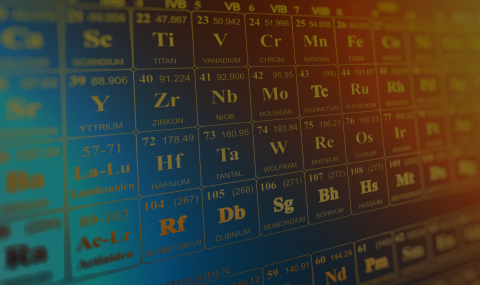Teachers in the 21st century have access to new, unique tools and platforms that were much less readily available in the last decade. Technology in the era of Web 2.0 includes websites and applications that provide a technological platform for users to independently create and share uploaded content for chemists and for chemistry teachers.
We have extensive experience with teachers’ PD regarding adapting technological tools to teach chemistry. In order to incorporate videos, social networks, scientific animations, and visualizations into chemistry lessons, teachers must develop their knowledge, not only regarding utilizing the technical aspects in the classroom but also in choosing appropriate methods and strategies that will facilitate incorporating these diverse tools and approaches into the chemistry learning process.
Moreover, teachers should understand the benefits of using these technological tools and believe in their own ability to effectively use technology in class. They need to have sufficient technological pedagogical content knowledge (TPACK) as well as adequate self-efficacy beliefs to make technological tools part of their working tools as chemistry teachers.
My PhD research dealt with integrating social networks into chemistry classrooms. In particular, I examined teachers' knowledge and self-efficacy beliefs in using social networks, such as Facebook and Whatsapp, in their chemistry classes. Later, during my post-doctoral fellowship in Germany, supported by the Humboldt Foundation, I examined how cultural context affected social network integration in science education.
During the Covid-19 pandemic, when all educational systems shifted to online teaching, we combined this knowledge in using technology for chemistry teaching with my experience with online teaching, and methodologically and comprehensively identified what chemistry high-school teachers needed to support their remote online teaching.
At the higher education level, we found that the lecturers only developed limited knowledge during a semester-long online teaching experience (mainly technological knowledge and techno-pedagogical knowledge) and did not reach the full TPACK. They also did not develop their self-efficacy regarding online teaching. This finding contradicts previous research on self-efficacy development, and it highlights the importance of using studies that were conducted during the pandemic with caution. The conditions of a worldwide pandemic might not be suitable to generalize these studies to other cases.
Post-Covid-19 pandemic During the Covid-19 period, education systems around the world were forced to switch to online teaching entirely. Although numerous teachers were exposed to this teaching method for the first time, many of them found advantages in using the approach. In this context, we investigate whether, in the absence of a systematic guidelines, teachers would continue to teach using online methods. Specifically, we examine teachers' beliefs regarding their level of self-efficacy when integrating dedicated learning technologies in the field of chemistry during their teaching and subsequent assessment and identify teachers who successfully apply this approach. All this with the aim of continuing to support chemistry teachers through professional development.


